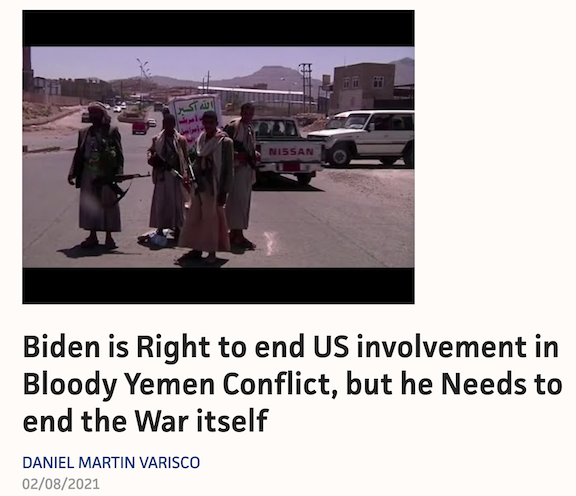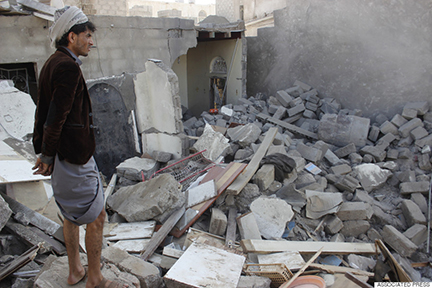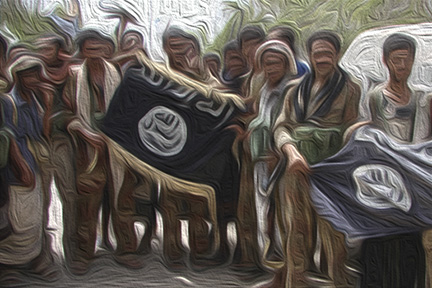
The Crisis in Yemen



In 1921 one of the many geographical/travel books published was the The Human Interest Library: Visualized Knowledge (Chicago: Midland Press). In volume IV there is a brief account of Egypt, mainly on the archaeological wonders. But there are several photographs that are of interest. I include the captions from the text. Unfortunately neither the date nor the photographer are indicated, but let us assume that they represent life in Egypt in the first couple of decades of the last century. There is also a summary of information about Egypt at the time, as noted below.





The Ottoman Empire, firmly established after the conquest of Constantinople cum Istanbul in 1453 lasted for almost five centuries, with the last sultan, Mehmet VI, leaving Turkey in November, 1922. In March, 1924 the official end of the “Ottoman Caliphate” was announced. The so-called “sick man of Europe” in its last century was ultimately a victim of the disastrous World War I. What was the view of the future near the end of the empire? In the May, 1917 issue of Century Magazine, Herbert Adams Gibbons wrote an article entitled “Europe and Islam: The Problems of the Califate and the Devolution of Mohammedan Lands.” This article also serves as a chapter in his book, published in the same year as The Reconstruction of Poland and the Near East (pp. 101-153). His use of “Mohammedan” was common for the time, but his argument is well worth reading today for his critique of European relations with the Ottomans and the Islamic world.
For Gibbons, who had spent years as a journalist in Turkey, the handwriting was already on the wall. The Ottoman “defenselessness has kept whetted the territorial appetite of the European powers. Some choice morsels have already been devoured: Russia was eating steadily until she reached Armenia across the Caucasus in 1878; and France and England did not stop for half a century until Tunis was consumed in 1881 and Egypt in 1882; Austria revived the European traditions of the generation before in Bosnia-Herzegovina in 1908; Italy and France in Tripoli and Morocco in 1911.”
“And after the present what – what more?” asked Gibbons. The carving up of Ottoman lands on the back of a napkin had already been set on the table, so the knives were ready. Gibbons noted that Russia wanted all of Armenia and even Istanbul; the French claimed Syria; the British were beating their way to Baghdad; Italy was dreaming of Albania and Asia Minor; Austria-Hungary was savoring Macedonia. Germany, on the other hand, “claims to be the protector of the integrity of the Ottoman Empire, and the sole friend left to Islam.”
“The history of international diplomacy in the Islamic world,” writes the American journalist Gibbons with little sympathy for European political ambitions, “is an unbroken record of bullying and blundering on the part of all the powers. In governmental policies one searches in vain for more than an occasional ray of chivalry, uprightness, altruism, for a consistent line of action in attempting to solve the problems that were leading Europe from one war to another, for constructive statesmanship. European cabinets used the aspirations of Christian subject races to promote their own ends against one another and to threaten Turkey. Then, for fear of sacrificing what they thought they had gained, foreign offices and ambassadors allowed the wretched Christians to be massacred for having dared to respond to European overtones and to put faith in promises of protection.”
Here is what Gibbons proposed:


Gibbons continues: “The indictment of European diplomacy in the near East is terrible; one might even say that it seems incredible.” After recounting the havoc sown by the major European powers, he adds, “The result is that virtually every Mohammedan country in the world has been treated by European nations as Belgium and Serbia and Poland have been treated. Their wrongs cry out to Heaven to be redressed, their aspirations cry out to the sense of fairness and justice for all mankind to be heard.”
So what was the author’s wish in 2017: “The problem is a thorny one, and, I am told by my diplomatic friends, ‘exceedingly difficult’. But that is only because European statesmen and politicians have made it so. Let every power in Europe proclaim its own disinterestedness, and state that it does not regard this war as a war of conquest, but a war of emancipation, and, lo! the problem disappears.”
Sadly, the problem did not disappear and new problems inevitably evolved.

Commercial giants are playing fast and loose with the Muslim fasting month of Ramadan. These days it can be a big juicy Ramadan deal, wherever you live, when you go out after avoiding food and water all day long. Fast food chains are especially eager to break your fast. Somehow I suspect that if the Prophet Muhammad were alive today, he would not order pizza and a coke for iftar. If fasting is only about denying yourself for half a day and then living it up for the other half, it loses all spiritual meaning. There are a number of hadiths recording what the Prophet Muhammad said about the holy month of Ramadan. One of these is related as follows: “When Ramadan enters, the gates of Paradise are opened, the gates of Hellfire are closed and the devils are chained” (Al-Bukhari and Muslim). Modern day businesses are more interested in opening the gates of their franchises and leaving the gates of Hellfire ajar, while quite a few devils seem to have no problem breaking their chains.
Just as Christmas is now about putting presents under a tree and Easter is searching for colored eggs, so Ramadan has become a time to buy rather than contemplate. Capitalism captures religion whenever there is a profit to be made out of a prophet. Restaurants offer special iftar meals, usually with elaborate spreads, and hours are reduced in most Muslim countries so workers can go home and take a nap. Religiosity shines while acting on the ethical principles of the faith takes second place to making sure iftar is exactly at the adhan and not a nanosecond before. This may be the letter of the law, but it misses the whole reason for fasting in the first place.
Then there are the promotions that show the hypocrisy of the appeal. Tsk, tsk British Tesco for inviting Muslims to partake of a Ramadan special like bacon-flavored Pringles. The artificial and the superficial combine to make Ramadan just another shopping holiday.


For my post on the Arab youth views of democracy, click here.

Saudi Arabia has announced that their Decisive Storm bombing campaign is over and they have accomplished their apparent goal of destroying any military capacity of Yemen. There is an old proverb in Arabic that states “ba’d kharab Basra” (after the destruction of Basra) and it is quite apt as a follow up to this news. The weapons destroyed can be replaced, and no doubt at some future date will be, but the lives lost and the mortal wounds to Yemen’s pride can never be restored even by a so-called “Restoration of Hope.” The Saudi offer to pay millions to rebuild Yemen pales in terms of what I assume must be measured by at least a billion or more in terms of the bombs dropped and resupplied. If instead of attacking Yemen from the air, the same amount of money had been given to build health clinics and schools, what a different outcome there would be. Instead, the stench of war is not about to be overcome by any monetary perfuming from abroad.
The damage inflicted by this ill-conceived war campaign is obvious. Forget the nonsense about an Iranian threat, which there never was. The Huthis never controlled anything; it was Salih’s former military supporters who were behind the takeover of Sanaa and the push to Aden. Try to remember the real threat inside Yemen, the one that energized the U.S. drone campaign: al-Qaida, known as Ansar Sharia, has more power and more sympathy now that at any other time. The south is basically in their control. There is little chance that they would welcome Hadi back. So the result of this bombing is a totally destabilized Yemen, a security nightmare, a humanitarian crisis that is not likely to be alleviated soon. Continue reading Ba’d kharab Sanaa

There is a sense in which all wars are stupid wars. But some are more stupid than others. Invading Iraq, which posed no tangible danger to the United States but filled the brainless crania of a group of neocons, is a prime example. Can you imagine Iraq as an ally of Iran or as a breeding ground for extreme ISIS terrorists if Saddam or one of his cronies was still in command? This is not to praise a butcher like Saddam, but to point out that the unintended, even if quite predictable, outcomes of hastily made warmongering tend to take on lives, as they take out lives, on their own. So here is the current scorecard for Decisive Storm, as it nears a month of nightly bombing. Instead of weakening the unholy alliance between the Huthis and Ali Abdullah Salih, this group controls more territory than it did when the bombing started. The major shock from the “shock and awe” campaign thus far is that it is destroying Yemen’s infrastructure and formal military structure, but steadily gaining allies who resent the vast destruction being unleashed on their homeland. Many of those Yemenis who did not like the Huthis now hate the Saudis even more. In addition to the homeless and the dead, the pride of Yemeni nationalism has been seriously wounded, but it is nowhere near dying.
Once upon a time the enemy in Yemen was al-Qaida, the group that sparked our unending and unnerving “War on Terrorism.” It was self-styled as a war against the uncivilized, since in this case only the civilized could muster drones and sophisticated bomber planes. Under Obama’s watch a few al-Qaida operatives were eliminated, along with a larger number of civilians who get classified as collateral damage. The American people are still being told that al-Qaida is our main enemy. Remember the Alamo; remember 9/11. But no longer, it seems. Continue reading Is the enemy of our enemy still an enemy?

Since the start of the Saudi-led Decisive Storm campaign in Yemen, I have published two commentaries on the blog of the Center for Middle East Studies at Lund University and three interviews on The Real News. While the situation is changing daily, seemingly for the worse each day, I note these commentaries here:
Lund Blog:
Proxy Morons: The Demolition of Yemen (http://www.menatidningen.se/english/proxy-morons-the-demolition-of-yemen) March 27
Sliding Towards a Virtual Genocide in Yemen (http://www.menatidningen.se/english/sliding-towards-a-virtual-genocide-in-yemen) April 13
The Real News:
Proxy Morons: The Demolition of Yemen (3/1)
http://therealnews.com/t2/index.php?option=com_content&task=view&id=31&Itemid=74&jumival=13565 April 4
Proxy Morons: The Demolition of Yemen (3/2)
http://therealnews.com/t2/index.php?option=com_content&task=view&id=31&Itemid=74&jumival=13636 April 12
Proxy Morons: The Demolition of Yemen (3/3)
http://therealnews.com/t2/index.php?option=com_content&task=view&id=31&Itemid=74&jumival=13639 April 13